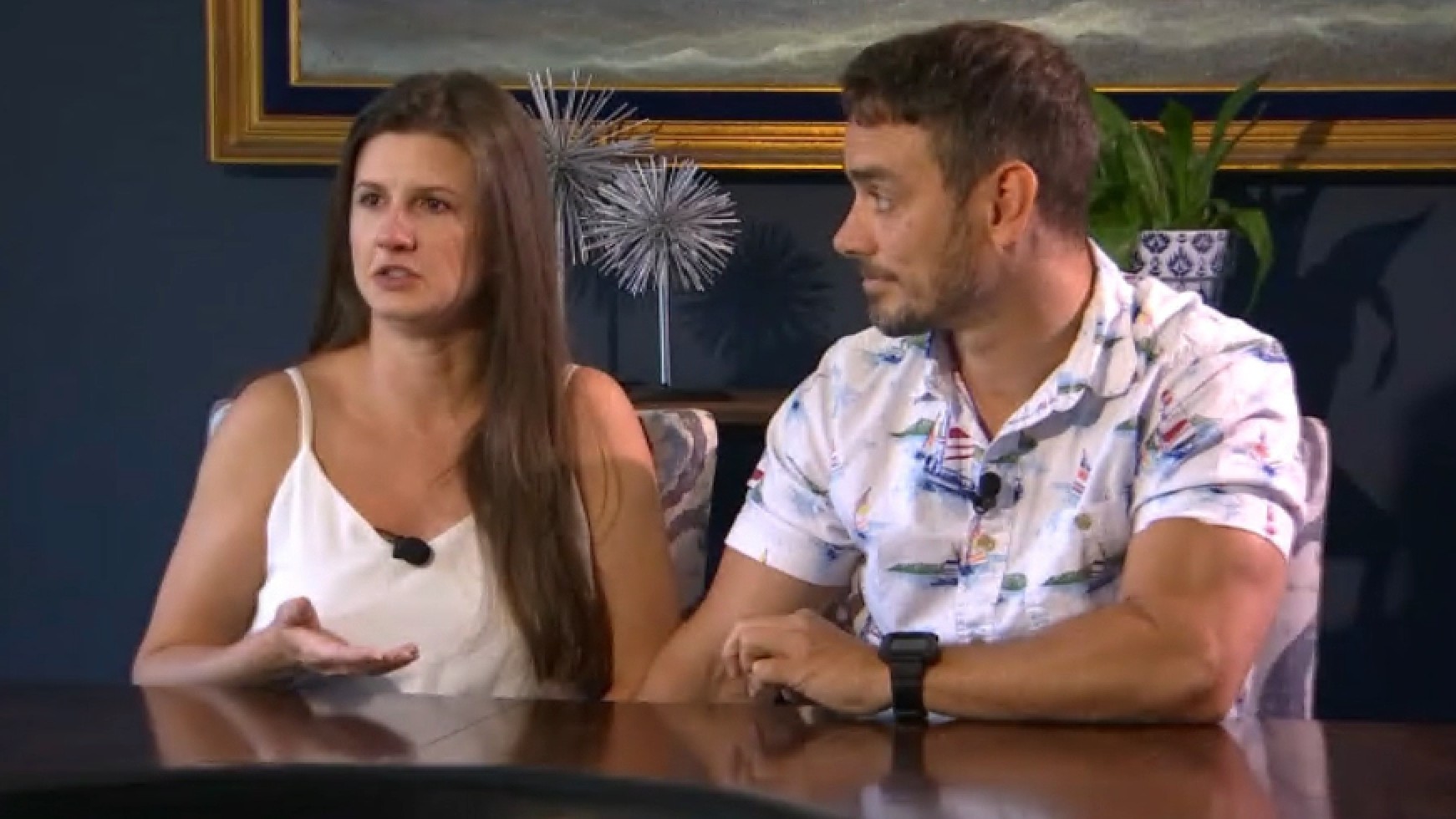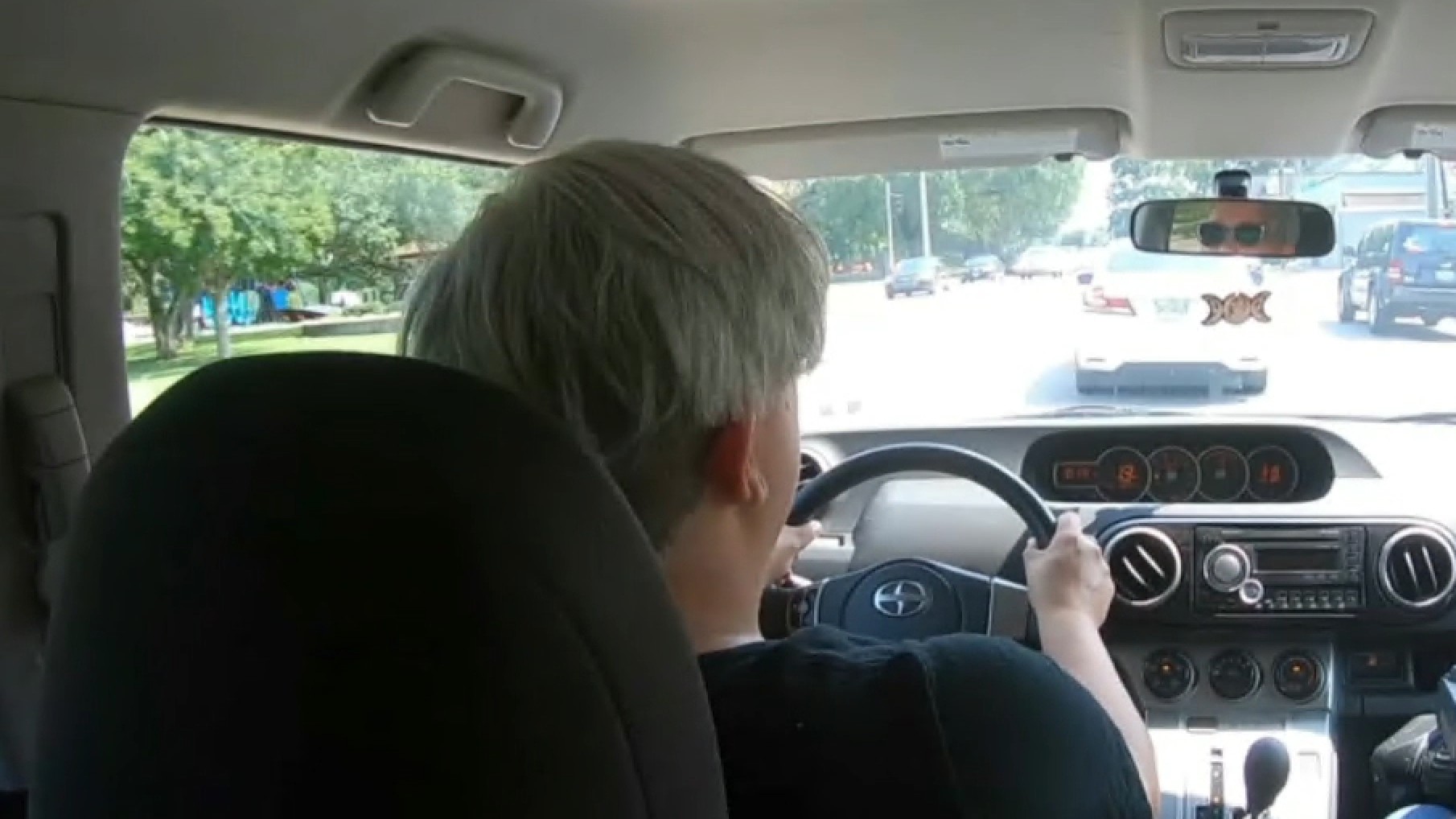In nearly 40 years of practice, Dr. Cathleen McCoy — a maternal-fetal medicine specialist who treats high-risk pregnancies — has seen any number of alarming medical situations. But never before has she encountered a situation like the one she finds herself in now: treating patients in two states poised to have very different laws on abortion.
For years, McCoy has maintained offices in Winchester, Virginia, and Martinsburg, West Virginia, where she works to diagnose and treat complex medical conditions affecting both mother and fetus. In some situations, she said, that may result in what she calls “early delivery” of a fetus that would not survive outside the womb.
“I have never gotten used to walking in a room and telling people … that their child will not survive,” McCoy said, adding: “It's a very grief-filled, sad situation.”
Now, the Supreme Court decision to overturn Roe v. Wade has shifted the legal landscape around her, she said, jeopardizing her ability to help families make the best decision in those circumstances.
In Virginia, Republican Gov. Glenn Youngkin quickly called for a ban on abortions after 15 weeks. In West Virginia, however, the impact was far more immediate, as the attorney general ruled an 1849 law that makes performing abortions a felony was suddenly enforceable.
Following the high court’s Dobbs v. Jackson Women's Health Organization ruling, McCoy said she and her colleagues halted any discussion of terminating pregnancies in their West Virginia office, no matter the cause. A judge would later temporarily block enforcement of that 1849 abortion ban, but McCoy said she doesn’t want to take any chances.
“I don't want it part of the medical record,” she said, adding: “I’m scared for them. These laws are all up in the air.”
Their decision was quickly put to the test when a woman arrived to McCoy’s Martinsburg office the following week with a fetus in “pretty bad trouble,” she said.
“We just simply looked at her and said, ‘We're sorry. Based on the laws in West Virginia, you're going to need to come to our Virginia office so we can talk to you about what's going on,’” she recounted.
Prior to the Supreme Court ruling, the two states had similar abortion laws, with West Virginia allowing abortion up to 20 weeks in some circumstances and Virginia through the second trimester, or third trimester if the mother’s life or health was in danger.
McCoy said it “makes complete sense” to have restrictions on most abortions after the point of fetal viability, but she said she fears what could happen if tougher restrictions, such as Youngkin’s 15-week proposal and West Virginia’s near total ban, are passed.
McCoy says both proposals are far too strict for the types of gut-wrenching complications that her patients and their fetuses face, which don’t always have quick or easy answers.
"We're making laws without really understanding these situations," she said, adding: "I don't know who will end up doing obstetrics in these states.”
Reached for comment, a spokesperson for Youngkin referred News4 to prior statements that said, in part, the governor has asked a group of lawmakers to "find areas where we can agree and chart the most successful path forward." Still, Republican-backed measures are sure to face opposition in a Democratic-controlled state Senate.
But West Virginia lawmakers have already begun drafting new legislation that aims to ban most abortions in the state. Though the House and Senate have yet to agree on final language, House Bill 302 has some exceptions, including for rape or incest if the assaults are reported, as well as for medical emergencies or a "nonmedically viable fetus," meaning one that cannot live outside the uterus.
McCoy said she’s especially concerned over language that could subject health care providers to criminal penalties for performing abortion – a proposal still being debated by the legislature.
"It doesn't feel safe to practice in West Virginia, because it's not apparent to me … when somebody could come after us as practitioners in health care," McCoy said.
Republican State Sen. Patricia Rucker, who represents part of West Virginia's Eastern Panhandle, voted against HB 302 because she worried it didn’t go far enough in preventing unlawful abortions.
She voted against amendments that would have allowed rape victims seeking abortion to report their assault to a mandatory reporter, such as a school counselor, instead of directly to law enforcement. She also opposed the Senate amendment that would have subjected medical providers accused of unlawful abortion to licensure review instead of criminal charges.
"There were measures put in that just, I felt, took away almost all accountability and and just made the law unenforceable," she told News4.
Still, she said, “It is not an intention of any person supporting this legislation to scare doctors."
Rucker said while doctors such as McCoy who are treating high-risk pregnancies are not the target of the bill, they would have recourse if their medical judgment is challenged.
In Virginia, McCoy said she is worried about a different unintended consequence if Youngkin’s 15-week ban comes to pass; she’s concerned it could force some families who receive worrying news about their fetus to make a decision to end a pregnancy before they’re ready. She explained that doctors often don’t have crucial answers from genetic testing until after that window has passed.
"You still have all of the due process rights of defending yourself,” Rucker said, later adding: “In almost all of these cases, they do almost always seek a second opinion from another doctor. It wouldn't just be based just on her [opinion] alone."
The Jefferson County lawmaker added that, no matter what is passed, she expects it will be amended if they see unintended consequences such as doctors leaving the state due to any chilling effect on routine medical care.
“That is definitely something that if we don't get the right balance and the right language, we would definitely fix,” she said.
In Virginia, McCoy said she is worried about a different unintended consequence if Youngkin’s 15-week ban comes to pass; she’s concerned it could force some families who receive worrying news about their fetus to make a decision to end a pregnancy before they’re ready. She explained that doctors often don’t have crucial answers from genetic testing until after that window has passed.
"It's a rare person that we have all the answers already by 15 weeks," McCoy said, adding: “Most of my patients come to me saying they would never terminate. I cannot tell you the number of people who have said that and then find out tough news.”
McCoy continued: "I can't imagine practicing in Virginia if we end up with a 15-week law.”
Virginia State Sen. L. Louise Lucas, a Democrat who heads the committee that will consider any abortion legislation, decried Youngkin’s proposal as “draconian.”
"These kinds of restrictions would definitely have an adverse impact on doctors in that it could criminalize them and it will keep them from being able to provide the health care services that pregnant people are seeking," she said.
Lucas called Virginia a “safe haven” and said she’s among those who will “fight like hell to make sure it stays that way.”
As McCoy nears the end of her career, she said she’s sharing her story with the hope lawmakers engage medical professionals like her before drafting legislation affecting such deeply personal decision making.
"I feel like I have an enormous lifetime experience really managing all these situations and that if I don't speak up, then we are going to be a society that pushes women to not having the choices and families not having the choices that they need," McCoy said.




